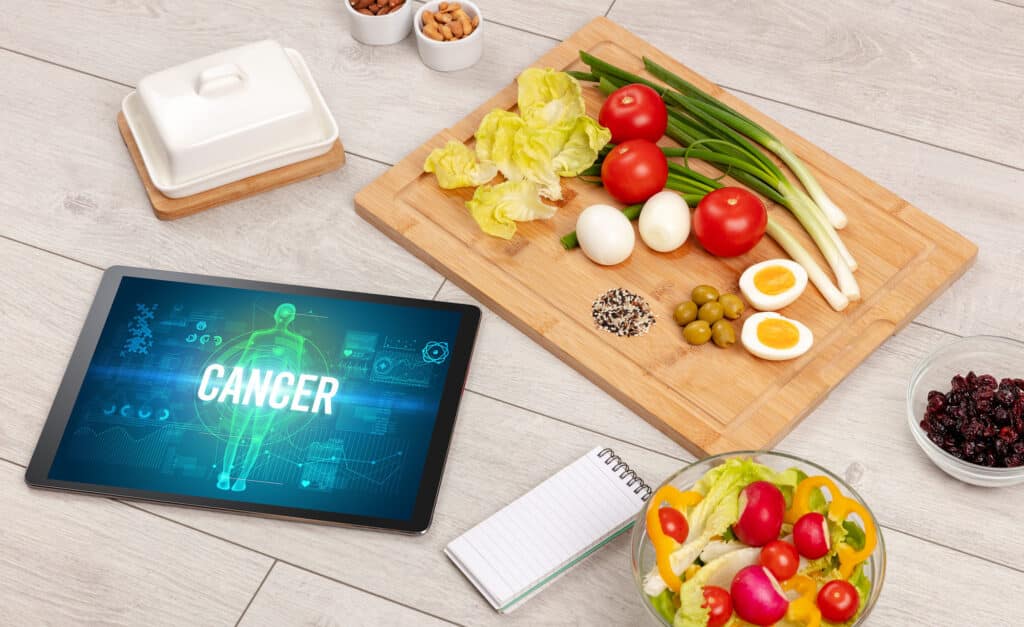Cancer and the treatments to cure it can affect every part of your loved one’s health and everyday living, including her appetite. Yet, we know that the body needs all the strength it can get from nutrients and calories to provide it with the energy and strength it’ll need for this battle. Let’s look at the best foods to eat during chemotherapy and how cancer care at home providers can help your loved one with nutrition support and specialized care.
Table of Contents
ToggleHow Chemotherapy Affects Eating Habits
The side effects of chemotherapy and radiation can wreak havoc on your loved one’s appetite, requiring care and support from cancer care at home providers.
- Loss of taste. Sometimes treatments reduce a person’s ability to taste or they can make foods taste weird. This can make it hard for your loved one to enjoy eating.
- Treatments can cause constipation, creating a fullness that gets more uncomfortable when eating.
- Nausea and vomiting can make holding down foods especially difficult, and they may create a fear in your loved one of eating anymore.
- Extreme fatigue can knock out appetite, making your loved one not want to eat since she’s not expending a lot of calories.
Six Food Suggestions for Cancer Patients
Since many of these foods are healthy for anyone, you might consider helping your loved one make some of these changes to her diet before she begins chemotherapy so her body will already have a good supply of important nutrients to provide it with strength and endurance as she goes through her chemotherapy treatments.
As with any diet change, check with your loved one’s physician before implementing any drastic changes.
- Eat plenty of lean and plant-based proteins. High-fat proteins can be harder to digest but protein is important for strength and stamina. Look for lean cuts of chicken and chicken, as well as plant-based proteins like tofu, beans, and nuts.
- Choose carbs wisely. Carbs will be important for your loved one as she recovers. Choosing carbs that are minimally processed, like oats, bran, and whole wheat can help her maintain good gut bacteria and be able to process foods better.
- Keep hydrated. Water is always best for hydration, but if your loved one is able, also look for foods that are rich in hydration like fruits and vegetables such as cucumbers, watermelon, and grapes. Make sure all fruits and vegetables are thoroughly washed before consumption.
- Healthy fats can combat the inflammation that often occurs during treatments. Look at adding fats such as avocado, olive oil, and grapeseed oil to your loved one’s diet.
- Vitamin-fortified foods. Serve foods that are enriched with essential nutrients and vitamins to get your loved one the biggest bang for her buck when eating. Cereals, pasta, and bread often have important nutrients like Vitamin D, which will help strengthen your loved one’s immune system.
- There are foods your loved one should strive to avoid such as uncooked fish (like sushi), soft-cooked eggs that may not be fully cooked, unpasteurized cheeses, and unwashed fruits and vegetables.
Getting Help for Cancer Care at Home Meals
It’s not unlikely that your loved one will feel too tired to make meals for herself during some of her chemotherapy time. This is why it can be beneficial to have someone ready to provide cancer care at home services. A home care provider who has skills in providing cancer care at home can support your loved one by creating meals and snacks that will support her health and recovery.
Providing exceptional Cancer Care at Home in Alexandria, VA, for seniors and families in the Northern Virginia area, including Arlington, Alexandria, McLean, Reston, Burke, Ashburn, Centreville, Springfield, Manassas, and Oakton. Call today to speak with our caring staff: (703) 272-8838.
- What Are Some Surprising Early Signs of Dementia? - May 22, 2025
- Training of the Month: Lymphedema - May 15, 2025
- Career and Opportunities Fair - May 15, 2025




